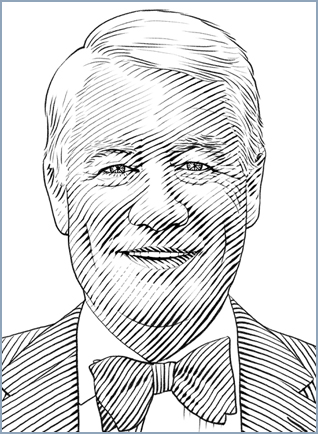This year’s European Society for Medical Oncology (ESMO) meeting held in Madrid was attended by 19,000 delegates, and it was encouraging to see among that number so many young oncologists being given time off for education and discussion. There has never before been a time when so much new information has become available so rapidly, showing positive results in many common cancers, and where science is driving the agenda. Keeping abreast of all this information is hard enough for all of us, but there are special challenges for less experienced oncologists or those in training. One example of this is the issue of knowing when to stop active anticancer treatment—that is, when to recognize that the best medical care should focus on palliation of symptoms and quality of life rather than pursuing tumor destruction.
Confusing Array of Choices
After an exciting afternoon listening to updates on the plethora of new molecules available for the treatment of malignant melanoma, I was involved in a discussion with a group of young oncologists who were trying to digest the range of possibilities now open to those who manage this disease, which until only a few years ago was considered essentially refractory to all medicines. The afternoon presentations detailed a range of new medicines prescribed singly or in combination, sequential exposure, and so forth.
Leaving aside any consideration of cost, I realized that these young oncologists were tempted to think that you could go on prescribing one medicine after another literally until the patient dropped—this is not good medical practice! Our conversation then developed into the challenges of explaining relapsed or resistant disease to patients and families and how to choose between recommending further treatment or a change of strategy to palliative care.
In earlier times, patients looked to their physicians for guidance, and some still do, but the modern tendency is to offer a menu of options and ask the patient to decide which choice to accept. While patients and their families should always make such decisions, they must of course be informed by their doctor, and good doctors guide their patients to the most appropriate choice.
The new challenge is that there are an ever-increasing number of third-, fourth-, and fifth-line treatments for malignancies such as breast cancer, lymphoma, and even melanoma, and the patient and physician sometimes seem to have a confusing array of choices. The reason I’m reporting this discussion with the young oncologists is to emphasize from my own experience the importance of knowing when to stop.
Difficult Discussion
Sometimes the patient makes this choice for him/herself—“doctor, I have had enough”—but there may be inappropriate hope that the next treatment will work a miracle, or conflicting ambitions from close friends or family desperately keen that no option should be left untried, although the patient clearly wants to stop. From the doctor’s perspective (and, again, I am leaving aside the financial aspects of all of this), it is important to recognize when further active treatment is very unlikely to alter the course of the disease.
Death is not a medical failure—indeed, it is the only certainty that awaits us all—but, as physicians, we can influence the timing (sometimes) and the quality (always) of the weeks or months that precede a death from cancer. It is much easier to recommend that a further line of treatment be tried, however flimsy the evidence of likely benefit, than to begin the discussion that now is the time to change the emphasis and objectives of care to focus solely on symptoms and emotional support of a preterminal patient.
Nevertheless, some of the best conversations I have ever had have been with patients at this stage of their disease, and I have witnessed the gratitude that follows if you get this conversation right. However painful the emotional experience, helping patients to understand that death is not far off allows them to move beyond false hope, and to relate to family and friends in a different way from the situation at diagnosis or during active treatment, when optimism is usually prevalent.
Enabling Experience
Having time to reflect, and allowing family to plan for later, is a wonderful and enabling experience for many patients, whatever their age. It is sad if we as doctors deny patients that opportunity by taking the easier route of prescribing more medicines, knowing that the likelihood of side effects is certain and the extension of useful life unlikely. That said, the advent of ever more choices can only confound this situation. I am not sure if my conversation in Madrid did anything to help the young oncologists involved, but at least we aired this important topic. ■
Disclosure: Dr. Smyth reported no potential conflicts of interest.


